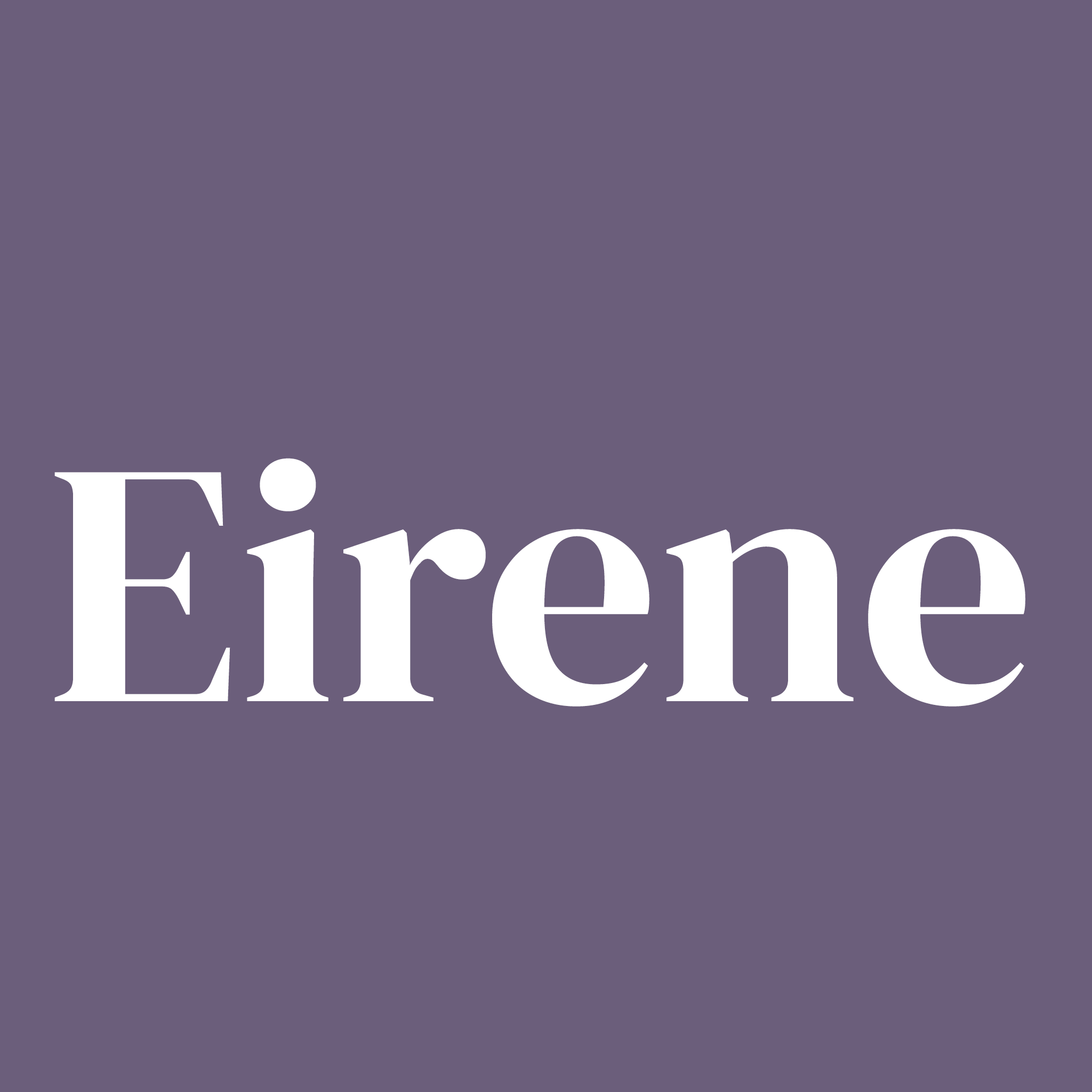How to Choose a Funeral Home or Cremation Service in Canada

How to choose a funeral home or direct cremation service in Canada
Choosing the right funeral home or direct cremation service to handle a loved one's final arrangements can be daunting, especially if you haven't dealt with an end-of-life services business before. You will have to make many quick decisions at a stressful time while you are grieving.
This funeral home and related services selection guide will help you do the thinking you need to do to make your interactions with your local funeral business easier.
Check if pre arrangements have been made
If you are dealing with an immediate need, that is to say, a family member has died, and you are responsible for their final arrangements. The first information you need to obtain is if they have pre-arranged their funeral and the funeral home or cremation services company (like Eirene). This will be contained in written documentation they will have on file. If they have a contract with an existing funeral business, you will need to access that document and call the funeral services business the contract is with.
If you determine there is no prearrangement contract, then you can proceed to choose a funeral home or a direct cremation service business.
Choose burial or cremation
If you know the person's wishes concerning their final disposition, then it will be easy to choose either cremation or burial. If you do not know, the information may be contained in a file your loved one prepared before they died. Check any documentation they may have filed in their home or with their family lawyer about their wishes. If the choice was not specified, you would need to choose either cremation or burial on their behalf.
Choosing cremation
The majority of Canadians today choose cremation as their final disposition. This is a process whereby a person's body is reduced to ash in a combustion chamber at a facility called a crematorium. A newer alternative is called aquamation or liquid cremation. Instead of heat, a chemical process called alkaline hydrolysis is used to reduce the body to "ash," which is a fine dust made up of calcium that comes from bone. Flame cremation and aquamation cost less than burial. A decorative casket is unnecessary, and embalming the body can be replaced with refrigeration for the short time between death and cremation. However, if a viewing is selected in the days that follow death, then embalming may be necessary in some cases.
See a list of Eirene's cremation funeral homes or cremation service providers:
Choosing burial
If you choose burial then, you will need to make additional arrangements. Selection of a cemetery and purchase of a grave plot or a vault in a mausoleum is needed. You will also need a memorial stone or marker. The funeral home you choose can help you with these tasks. Funeral homes can assist with both cremation and burial. However, much of their business involves the extra services that some people choose. Find out if the funeral home can provide chapel space, visitation and viewing rooms, parking, reception facilities, and catering service if required, and working relationships with nearby cemeteries are also important.
Using a funeral home for a burial can become very expensive unless you are clear about the services you want and the budget you are working with.
How to choose a funeral home versus direct cremation service
You will need the services of a funeral home if you want a full traditional funeral with a viewing, a funeral ceremony, along with either burial in a cemetery or cremation. If a viewing is selected, the remains may be embalmed to temporarily preserve the body before burial or cremation. However, for a short period of time, refrigeration can be used for this purpose. For these more elaborate end-of-life services, you'll want to find a reputable funeral home to provide them.
Direct cremation companies are the alternative (Read: What is direct cremation?). The deceased person is transported to a holding facility where their remains are refrigerated until final paperwork can be completed. Their remains are then cremated, and their ashes are returned to their family. The ashes can be kept in an urn at a family home, scattered or buried in a cemetery, or placed in a columbarium. For direct cremation services, you'll need to contact a company like Eirene to make arrangements.
Rules about funeral costs
The cost of a funeral can sometimes be a mitigating factor in what end-of-life arrangements will be made when a person dies.
In Canada, a complete funeral service requires approximately 80 hours of professional work. On top of that, every service must be tailored to each family's needs, considering their personal and religious preferences.
Funeral providers are required by Canadian law to provide an itemized list of services and products they offer with associated costs. They must also provide copies of this price list when requested.
Funeral and direct cremation providers, sometimes called immediate disposition providers, only deliver essential services like government paperwork facilitation and transportation of your loved one to a cemetery or crematorium.
Immediate disposition providers are required to disclose by law in Canada that they are prohibited from providing a full range of funeral services.
Direct cremation services cost in the $2,000 to $5,000 range. Full funerals with burial or cremation can run more than $10,000. Here is more information on common funeral costs, including cremation and burial.
Funeral service fees
Here are the key items you'll typically find on a funeral home or direct cremation service's price list:
Professional service fees
Funeral directors and their staff charge professional fees for a variety of services. They include: transfer of the body from the place of death (including by air if necessary), obtaining medical death certificates, completing government forms, registering the death, and obtaining necessary permits.
Fees for the care of the deceased are also listed. This can include embalming, restoration, and dressing of the deceased for viewing if requested.
Embalming is only necessary under specific conditions. They include repatriation of a body or if there is a longer duration between death and burial or cremation.
Total personal supervision of all service arrangement details before, during, and after these services include an arrangement conference with family members, preparation and placing the obituary notice in your local paper, clerical consultation, arranging and caring for floral tributes, and transfer to a cemetery or crematorium.
Fees for using a funeral home and its facilities include the arrangement office, stationery (such as memorial books, service programs, and thank you cards), reception areas, chapel, selection and preparation rooms, and parking. There are also fees payable for vehicles involved in transferring remains and vehicles required for additional services.
You will also be charged for merchandise such as basic containers or caskets. Sellers of caskets and coffins are required by law in Canada to display their lowest price product.
Cemetery and crematorium
There will be fees for a grave plot that is purchased from a cemetery if burial is selected. Ashes after cremation can also be buried in a cemetery plot. In the case of cremation, a fee is chargeable for crematory services.
Indirect costs or cash disbursements
Essentially these refer to money that the funeral provider pays out in advance on your behalf to cover items and services like obituary notices, organists or soloists, and honorarium fees to clergy members or officiants. One thing to note: Flowers are billed separately from disbursements.
Use a funeral home or service provider you feel comfortable with
Find a funeral home or direct cremation provider you are comfortable with. Professional companies will not pressure you or try to upsell you. They should be supportive and guide you and your family at a difficult time. They will execute their duties professionally, bring dignity to the end-of-life services they provide and treat your loved one with respect.
A good way to determine a provider is to speak to them on a brief phone call and understand what services they provide and how they provide them. Call several companies in your search and get a feel for their level of service and their ability to answer your questions. A first impression is often very telling.
Find out if the funeral home or direct cremation provider you're looking at is a member in good standing with the regulatory board in your province. In Ontario, for example, it is the Bereavement Authority of Ontario (BAO).
Look for reviews of the business. Do a cursory online search about the business to see what information comes up. Have any media companies written about the business? Ask friends and families for referrals if they have used a funeral or direct cremation business before.
Have questions?
If you need more help or have questions, contact us at Eirene. We offer a completely online direct cremation in a simple, flat-fee package. Check out our offering today. We also respond to queries by phone or email 24 hours per day. You can contact us here.




